This comprehensive article aims to explore the various properties and health benefits of cinnamon, a popular spice known for its unique flavor and aroma. Through an examination of scientific literature and historical uses, we seek to provide a detailed understanding of the numerous advantages associated with this versatile spice.
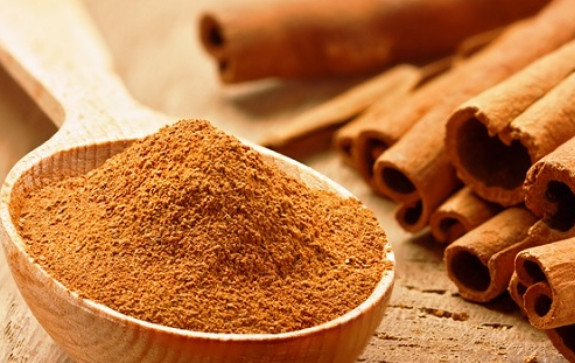
1.Introduction
1.1. Origin and history of cinnamon
Cinnamon is a popular spice that has been used for thousands of years for its distinct aroma, flavor, and medicinal properties. It is derived from the inner bark of several tree species belonging to the Cinnamomum genus, native to South Asia and Southeast Asia, particularly in regions such as Sri Lanka, India, Bangladesh, and Myanmar.
Historically, cinnamon was highly valued for its unique characteristics and was often considered a luxury item in many ancient civilizations. The spice has been mentioned in Chinese writings as far back as 2800 BCE and was used in ancient Egypt for embalming purposes due to its preservative properties. Cinnamon also played a significant role in the spice trade and was a prominent commodity in the Arabian Peninsula and Mediterranean region.
1.2. Types of cinnamon and their differences
There are two primary types of cinnamon: Ceylon cinnamon (Cinnamomum verum) and Cassia cinnamon (Cinnamomum cassia). Although they share similarities in taste and aroma, they have different origins, chemical compositions, and health benefits.
Ceylon cinnamon, also known as “true cinnamon,” is native to Sri Lanka and southern parts of India. It has a lighter color, delicate flavor, and a slightly sweet taste. The bark of Ceylon cinnamon is thinner and more brittle, forming multiple layers when rolled into cinnamon sticks. Ceylon cinnamon contains lower levels of coumarin, a naturally occurring compound that can cause liver damage in high doses.
Cassia cinnamon, on the other hand, is native to China and is the most common type of cinnamon found in supermarkets worldwide. It has a stronger flavor, darker color, and a slightly bitter taste. The bark of Cassia cinnamon is thicker and forms a single layer when rolled into cinnamon sticks. Cassia cinnamon contains higher levels of coumarin, making it potentially more harmful when consumed in large quantities.
Due to the differences in chemical composition and coumarin content, it is generally recommended to opt for Ceylon cinnamon for regular consumption, as it poses fewer risks and offers more health benefits.
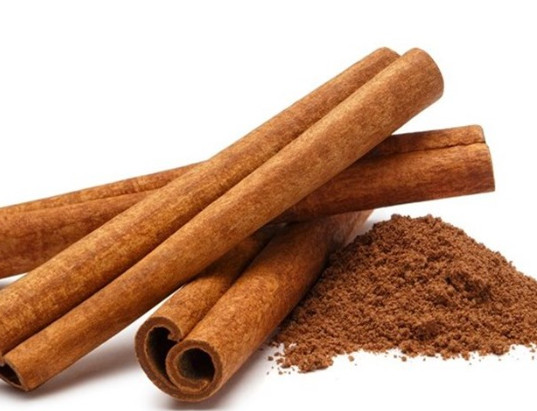
2. Chemical Composition of Cinnamon
2.1. Essential oils and aromatic compounds
Cinnamon’s characteristic aroma and flavor are primarily due to its essential oil content, which makes up approximately 0.5-2.5% of its weight. The essential oil is a complex mixture of volatile compounds, with the main component being cinnamaldehyde, accounting for about 60-75% of the oil. Cinnamaldehyde is responsible for cinnamon’s warm and sweet-spicy taste and is believed to be the primary contributor to many of its health benefits.
Other significant constituents of cinnamon essential oil include eugenol, which contributes to the spice’s clove-like aroma, and trans-cinnamic acid, which has a slightly sweet and balsamic fragrance. Additionally, cinnamon contains trace amounts of various other compounds, such as linalool, coumarin, and caryophyllene, which contribute to its complex flavor profile and potential health benefits.
2.2. Nutrient content and bioactive compounds
Cinnamon is also rich in various nutrients and bioactive compounds, which contribute to its health-promoting properties. It is a good source of dietary fiber, manganese, calcium, and iron, although these nutrients are generally consumed in small amounts due to the low serving size of cinnamon typically used in foods.
In addition to essential oils, cinnamon contains a range of bioactive compounds, such as polyphenols, flavonoids, and tannins. These compounds exhibit antioxidant, anti-inflammatory, and antimicrobial properties, which are believed to contribute to the spice’s numerous health benefits. The specific composition of bioactive compounds varies between the different types of cinnamon, with Ceylon cinnamon generally having a higher concentration of beneficial compounds compared to Cassia cinnamon.

3. Antioxidant Properties of Cinnamon
3.1. Free radical scavenging and oxidative stress reduction
Cinnamon is known for its potent antioxidant properties, which help protect the body against the harmful effects of free radicals. Free radicals are unstable molecules that can cause cellular damage and contribute to aging and various diseases, such as cancer, cardiovascular disease, and neurodegenerative disorders. The antioxidant activity of cinnamon is primarily attributed to its rich content of polyphenols, flavonoids, and other bioactive compounds.
These compounds act as free radical scavengers, neutralizing and removing free radicals from the body, thereby reducing oxidative stress. Cinnamon’s antioxidant activity has been demonstrated in various in vitro and in vivo studies, where it has been shown to be more potent than many other commonly used spices and herbs.
3.2. Role in disease prevention and health promotion
The antioxidant properties of cinnamon play a crucial role in promoting overall health and preventing various diseases. By reducing oxidative stress, cinnamon may help protect the body against the harmful effects of free radicals, which can contribute to chronic inflammation and cellular damage.
Research suggests that a diet rich in antioxidants, such as those found in cinnamon, may help lower the risk of several chronic conditions, including heart disease, cancer, and type 2 diabetes. Additionally, cinnamon’s antioxidant activity may play a role in supporting cognitive function and protecting the brain against age-related decline and neurodegenerative diseases, such as Alzheimer’s and Parkinson’s disease.

4. Anti-inflammatory Effects of Cinnamon
4.1. Mechanisms of action
Cinnamon exhibits potent anti-inflammatory properties, which can be attributed to its bioactive compounds, such as cinnamaldehyde, eugenol, and various polyphenols. These compounds can modulate the activity of inflammatory mediators, including cytokines, enzymes, and signaling molecules, which play a role in the body’s immune and inflammatory responses.
Inflammation is a natural and necessary process that helps the body heal from injuries and defend against infections. However, chronic inflammation can contribute to a variety of health issues, such as autoimmune diseases, cardiovascular diseases, and cancer. Cinnamon’s anti-inflammatory compounds can help mitigate chronic inflammation by inhibiting the production of pro-inflammatory substances, reducing the activity of inflammatory enzymes, and suppressing the activation of immune cells.
4.2. Applications in treating inflammatory conditions
Due to its anti-inflammatory properties, cinnamon has been investigated as a potential treatment or adjunct therapy for various inflammatory conditions. Some of these conditions include arthritis, asthma, inflammatory bowel disease (IBD), and neuroinflammation associated with neurodegenerative disorders.
Research has shown that cinnamon can alleviate joint pain and inflammation in animal models of arthritis, improve lung function and reduce airway inflammation in animal models of asthma, and attenuate intestinal inflammation in animal models of IBD. Moreover, studies have demonstrated that cinnamon can reduce neuroinflammation and protect neurons in animal models of Alzheimer’s and Parkinson’s disease.
While these findings are promising, more research is needed to establish the efficacy and optimal dosage of cinnamon as a treatment for inflammatory conditions in humans. Nonetheless, incorporating cinnamon into a balanced diet may provide some anti-inflammatory benefits and support overall health.
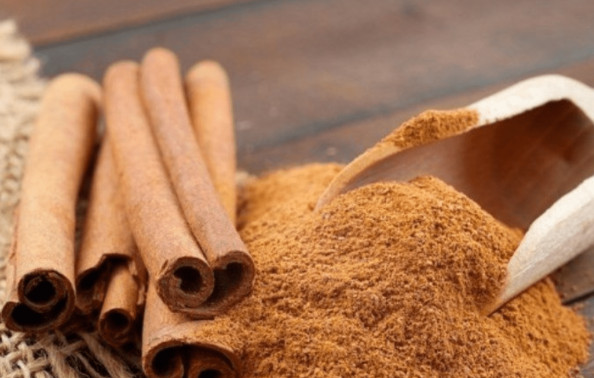
5. Antimicrobial and Antifungal Properties of Cinnamon
5.1. Efficacy against various pathogens
Cinnamon has been shown to possess antimicrobial and antifungal properties due to the presence of bioactive compounds such as cinnamaldehyde, eugenol, and other essential oil constituents. These compounds can inhibit the growth and proliferation of various pathogens, including bacteria, fungi, and viruses, by disrupting their cell membranes, inhibiting the synthesis of essential proteins, and interfering with their metabolic processes.
In vitro studies have demonstrated that cinnamon is effective against a range of bacteria, including Escherichia coli, Staphylococcus aureus, and Salmonella enterica. Additionally, cinnamon has been shown to inhibit the growth of various fungi, including Candida species, which are responsible for yeast infections. Cinnamon also exhibits antiviral properties and has been found to be active against certain viruses, such as the influenza virus and the human immunodeficiency virus (HIV).
5.2. Potential use in food preservation and medicine
The antimicrobial and antifungal properties of cinnamon make it a potential candidate for use in food preservation and medicine. In food preservation, cinnamon could be utilized as a natural preservative to extend the shelf life of food products by inhibiting the growth of spoilage microorganisms and preventing foodborne illnesses.
In medicine, cinnamon could be explored as an alternative or adjunct therapy to conventional antimicrobial agents, particularly in the context of increasing antibiotic resistance. The use of natural compounds, such as those found in cinnamon, may offer a promising strategy to combat drug-resistant pathogens and reduce the reliance on conventional antibiotics.
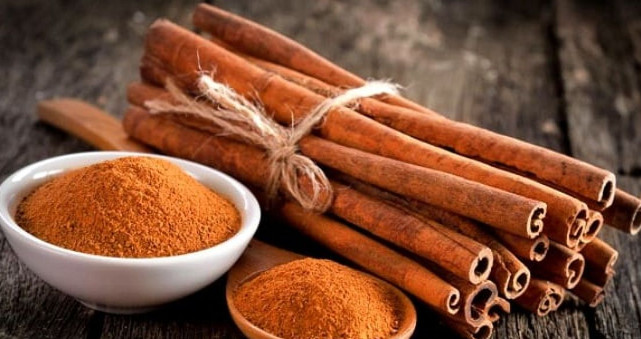
6. Cinnamon and Blood Sugar Regulation
6.1. Effects on glucose metabolism
Cinnamon has been widely studied for its potential role in regulating blood sugar levels and improving glucose metabolism. The bioactive compounds in cinnamon, such as cinnamaldehyde and polyphenols, are believed to have insulin-like effects that can enhance insulin sensitivity, increase glucose uptake by cells, and inhibit the breakdown of carbohydrates into glucose.
In vitro and animal studies have shown that cinnamon can increase the expression of glucose transporter proteins, which are responsible for transporting glucose across cell membranes, and activate enzymes involved in glucose metabolism. Additionally, cinnamon has been found to inhibit the activity of alpha-glucosidase and alpha-amylase, enzymes that break down complex carbohydrates into simple sugars, thus slowing down the absorption of glucose into the bloodstream and preventing blood sugar spikes.
6.2. Role in diabetes management and prevention
Cinnamon’s effects on glucose metabolism have made it a popular natural remedy for managing and preventing type 2 diabetes. Several clinical trials have investigated the efficacy of cinnamon supplementation in improving blood sugar control in people with diabetes or prediabetes. Some of these studies have reported significant improvements in fasting blood glucose levels, glycated hemoglobin (HbA1c), and insulin sensitivity following cinnamon supplementation.
However, the findings from these clinical trials are not entirely consistent, and some studies have found no significant effects of cinnamon on blood sugar control. These discrepancies may be due to differences in study designs, cinnamon dosages, and participant characteristics.
Although more research is needed to establish the optimal dosage and duration of cinnamon supplementation for blood sugar regulation, incorporating cinnamon into a balanced diet may provide some benefits for individuals with diabetes or at risk of developing the condition. It is important to note that cinnamon should not be considered a replacement for conventional diabetes treatments but may be used as a complementary therapy under the guidance of a healthcare professional.
7. Cinnamon and Heart Health
7.1. Impact on cholesterol levels
Cinnamon has been studied for its potential benefits on heart health, particularly in relation to cholesterol levels. The bioactive compounds found in cinnamon, such as cinnamaldehyde and polyphenols, may help improve lipid metabolism and reduce the risk of developing cardiovascular diseases.
Several studies have investigated the effects of cinnamon supplementation on blood lipid profiles in individuals with type 2 diabetes and those with elevated cholesterol levels. Some of these studies have reported significant reductions in total cholesterol, low-density lipoprotein (LDL) cholesterol, and triglycerides, as well as increases in high-density lipoprotein (HDL) cholesterol following cinnamon supplementation.
However, the results of these studies are not entirely consistent, and some have found no significant effects of cinnamon on blood lipid levels. These discrepancies may be due to differences in study designs, participant characteristics, and cinnamon dosages.
7.2. Effects on blood pressure and circulation
Cinnamon may also have beneficial effects on blood pressure and circulation. The bioactive compounds in cinnamon, such as cinnamaldehyde, have been shown to exhibit vasodilatory effects, which can help relax blood vessels, reduce blood pressure, and improve blood flow.
Animal studies have demonstrated that cinnamon can lower blood pressure in hypertensive rats, while in vitro studies have shown that cinnamaldehyde can induce the relaxation of blood vessel walls by modulating the activity of calcium channels.
Limited clinical trials have also suggested that cinnamon supplementation may help reduce blood pressure in individuals with hypertension. However, more research is needed to confirm these findings and determine the optimal dosage and duration of cinnamon supplementation for blood pressure regulation.
In conclusion, while the evidence for cinnamon’s benefits on heart health is not yet conclusive, incorporating cinnamon into a balanced diet may provide some cardiovascular benefits, particularly in the context of blood sugar and cholesterol management. As always, it is essential to consult with a healthcare professional before starting any supplementation regimen, especially if you have pre-existing health conditions or are taking medications.

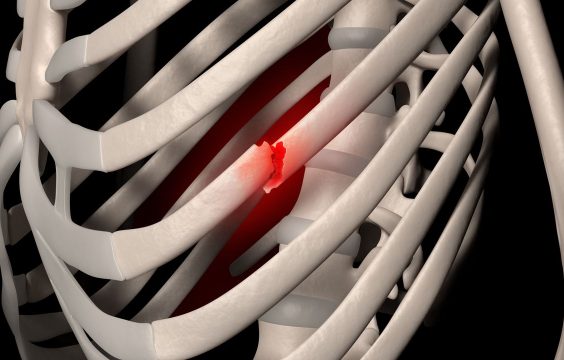





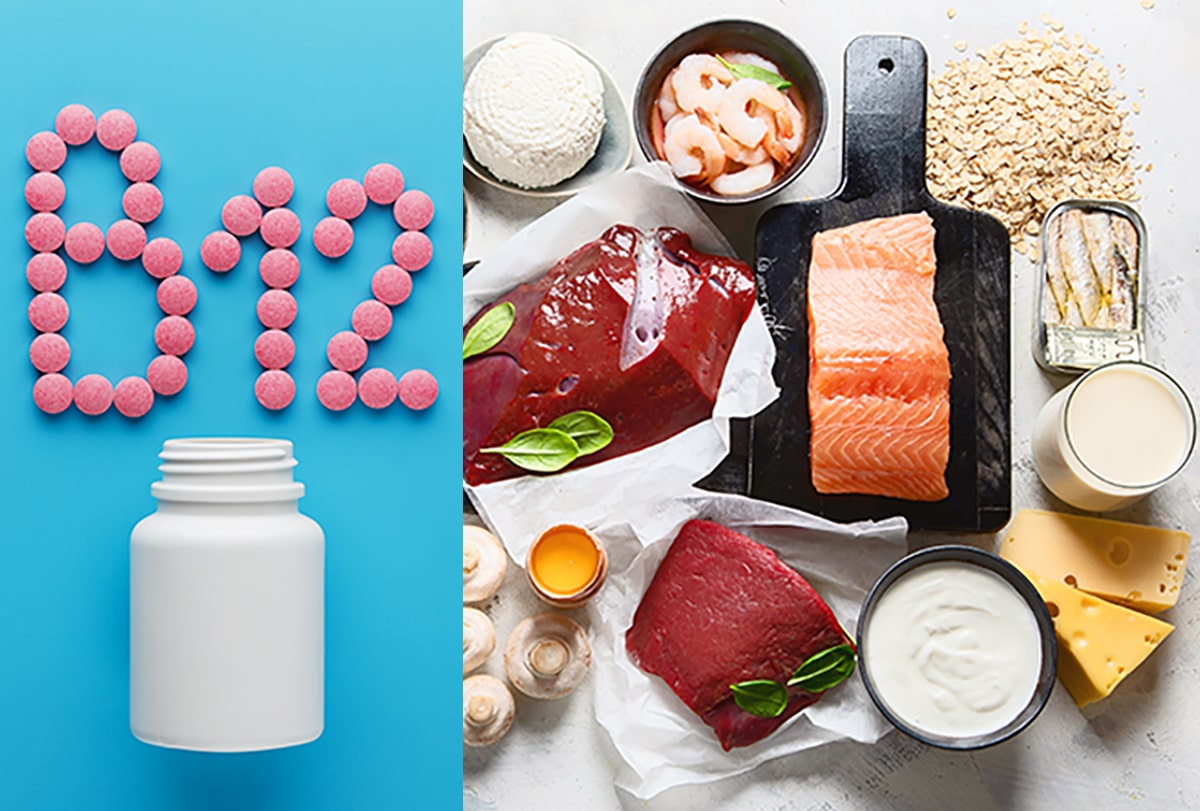

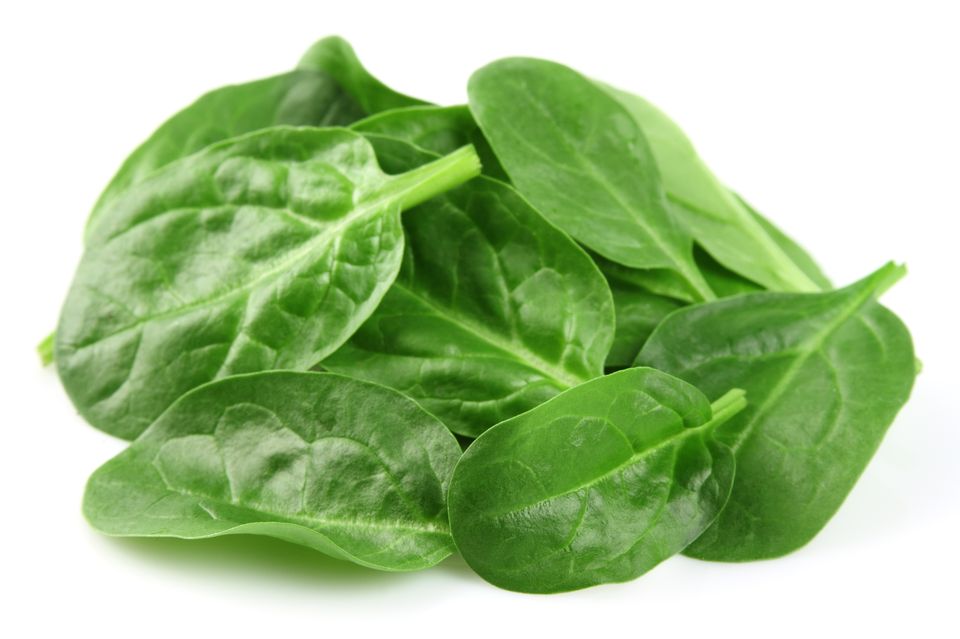
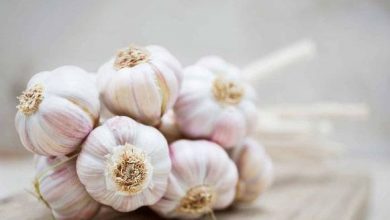
3 Comments